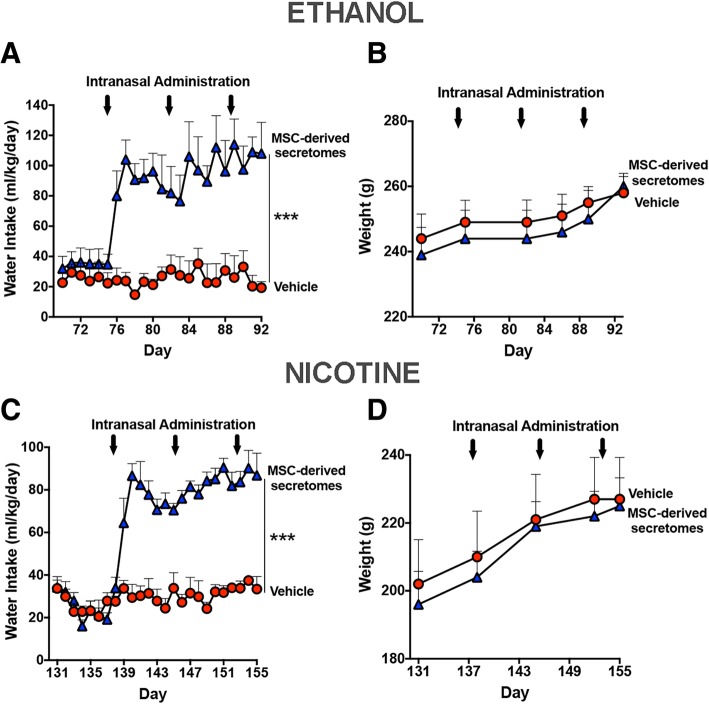Fig. 3.
Secretome administered at weekly intervals to chronical ethanol- and nicotine-ingesting rats led to increases in water intake while not affecting body weight gain. a Three intranasal doses of secretome to chronic ethanol-drinking rats, that had resulted in a marked inhibition of ethanol intake (shown in Fig. 2a, left), induced, in the same animals, a significant increase in water intake (blue triangles) (F1,161 = 189.7, p < 0.001), significant effect of day (F22,161 = 2.34, p < 0.001), and significant interaction (F22,161 = 2.45, p < 0.001) versus control rats treated with vehicle (red circles). Bonferroni post-hoc analysis revealed that the intranasal administration of secretome significantly increases water intake during the period of secretome treatment versus control rats treated with vehicle (p < 0.001). b Secretome treatment did not affect the animal’s body weight gain (F1,48 = 0.83, p = 0.36; N.S.). c Three intranasal doses of secretome to chronic nicotine drinking rats, that had produced a marked inhibition of nicotine intake (shown in Fig. 2c,left), induced, in the same animals, a significant increase in water intake (blue triangles) (F1,175 = 443.2, p < 0.001), significant effect of day (F24,175 = 13.87, p < 0.001), and significant interaction (F24,175 = 9.42, p < 0.001) versus control rats treated with vehicle (red circles). Bonferroni post-hoc revealed that the intranasal administration of secretome significantly increases water intake during the 17 days of secretome treatment versus control rats treated with vehicle (p < 0.001). These findings suggest that the increase in water intake is a compensatory mechanism for the decrease in drug intake, which is keeping the total amount of body fluid intake. d Secretome treatment did not affect the animal’s body weight gain (F1,35 = 0.41, p = 0.52; N.S)

